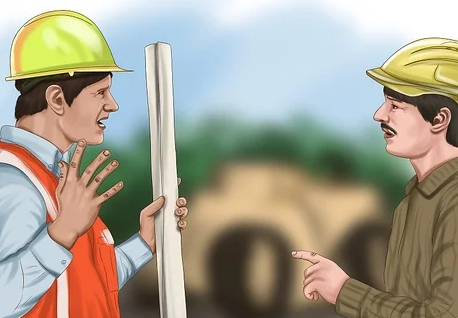Projects involve many technical, commercial and financial matters. The addition of a lot of people to already complex issues is a ready pot for disputes to arise due to ambiguities and ego clashes. Dispute resolution strategies for construction project become a must for completion of projects.
Why Do Disputes Arise In Construction Projects

The construction industry in which projects are undertaken is very unique for the fact that most construction projects are one time affairs that may never be repeated. They also take place in an atmosphere where things like the weather, geographical conditions like the soil, and other social, political and environmental conditions are indeterminate and not very easy to control or predict. They also involve a large number of stakeholders in their execution which in itself can lead to disputes because of the different ways in which each person views his or her position in the project and their contribution to it. Such stakeholders can be broadly put into three groups that govern the execution of a project. They are the owners, the project management team, and the contractors. Each group has its own priorities and this in itself can lead to disputes. Owners would stress timely completion to required standards within a budget. Project management would have broadly the same objectives, but would lay greater stress on engineering and quality. Contractors would try to keep down their costs during execution while trying to achieve time and quality execution.
Disputes arise when the wording of the contract is unclear, which leaves itself to needing interpretation. Claims are the reason for a majority of disputes, and these can result from changes in design or in specifications. While some of these changes may be forced by external circumstances, they are quite often a result of poor conceiving of the project by the planners. A poor definition of the scope of work involved in various items can also lead to disputes. Slippages in time schedules quite often lead to penalties being imposed which themselves form the basis of a dispute. Disputes can also arise due to misunderstandings or poor communication. External factors can cause uncertainty in a contract and may be due to extreme weather conditions and geological conditions that cause time slippages in a contract. A change in governmental regulations, planning authority dictates, and social and political impacts can also affect a project and lead to disputes and claims that need resolution.
Resolving Disputes in the Construction Industry

Dispute management has to involve some process of handling the project that identifies likely scenarios of disputes and prevents them from happening. This involves a lot of communication between all parties in the project and a sincere effort to prevent disputes.
Dispute resolution strategies for construction projects can have an agreed mechanism that has to go into action which involves negotiation which finds an equitable solution to the dispute. During this time of negotiation both parties to the dispute have to agree to be neutral and find the reasons for the dispute and resolve the technical, financial, commercial, and legal matters that it involves. The approach can be a step by step approach, which first clears matters that are not binding, before moving to the contentious issues which would require some sort of binding or commitment from either or both parties to the dispute.
An unresolved dispute can lead to litigation which in turn will definitely affect the completion and cost of the project. Most contracts for construction projects do involve a clause for arbitration where the arbitrator is a party that has been already agreed to at the time of signing the contract. There is no guarantee that an arbitrator’s solution will be acceptable to both parties. In such cases the matter does go into litigation. Arbitration does have a legal standing in most countries and is akin to a judge hearing both parties.
Alternate Dispute Resolution Strategies
Alternative dispute resolution construction can involve things like mediations, conciliation, adjudication, or expert determination.
Mediation and conciliation involve third parties agreed to by both parties. Both are like the process of negotiation, but may be non-binding. Recommendations made by such third parties are attempts to solve the dispute.
Adjudication is very similar to arbitration but will involve an adjudicator to be appointed with the consent of both parties. An adjudicator will normally hear both parties to the dispute separately before giving an opinion on the matter.
Involvement of technical issues which are the basis of a dispute can lead to an expert being agreed to who will give a final ruling on the dispute. Such experts would normally require an undertaking by both parties to abide by the resolution offered.


